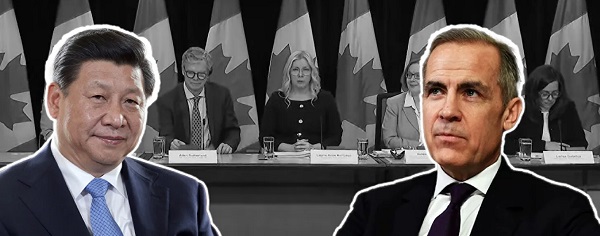Uncategorized
Labour Party says UK should oppose Assange extradition to US

LONDON — Key figures in Britain’s opposition Labour Party said Friday the government should oppose the extradition of WikiLeaks founder Julian Assange to the United States on charges of conspiring to break into a Pentagon computer.
Party leader Jeremy Corbyn said in a tweet that the U.S. is trying to extradite Assange because he exposed “evidence of atrocities in Iraq and Afghanistan.”
Diane Abbott, Labour’s spokeswoman for domestic affairs, said the government should block the extradition on human rights grounds. She said the U.S. case against Assange is about the “embarrassment of the things he’s revealed about the American military and security services.”
The politicization of Assange’s case reflects the wide interest in the legal future of a man hailed by some as a heroic whistleblower standing up to governments, and condemned by others as a willing stooge who helped the Russians boost the campaign chances of President Donald Trump, who had showered praise on WikiLeaks in 2016 and welcomed its release of Hilary Clinton’s campaign emails.
Assange faces what is likely to be a titanic struggle to fend off extradition to the U.S. — and possibly a second extradition request from Sweden on rape allegations.
Police arrested the WikiLeaks founder Thursday at the Ecuadorian embassy in London after Ecuador withdrew his asylum. He is in British custody awaiting sentencing for jumping bail in 2012.
U.S. Justice Department officials seek to put Assange on trial for allegedly conspiring to break into a classified government computer at the Pentagon. The charge was announced after Assange was taken into custody. If found guilty, Assange faces a maximum five years in prison. It is also possible that Assange, 47, will face an extradition request from Sweden if prosecutors there decide to pursue allegations of rape and sexual misconduct against him.
Assange took refuge in the Ecuadorian embassy in 2012 after he was released on bail in Britain while facing extradition to Sweden on the allegations. He had stayed inside the embassy building for nearly seven years.
Swedish prosecutors dropped the case against Assange in 2017, saying at the time there was no prospect of bringing him to Sweden because of his protected status inside the embassy. The allegations by two women have not been tested in court and Assange has denied wrongdoing.
Assange received a verbal rebuke in his first London court appearance Thursday afternoon when District Judge Michael Snow found him guilty of breaching his bail conditions.
“Mr. Assange’s
Assange’s next court appearance was set for May 2 via prison video-link in relation to the extradition case, a process that involves several layers of appeal that could take several years.
Extradition lawyer Ben Keith said the court will not assess the evidence against Assange in an effort to determine his guilt or innocence, but will scrutinize whether the
“The most likely outcome is that he will be extracted to the United States,” he said.
Britain is bound by law not to extradite a suspect to a country where he or she could face execution for the crime, but this is not an issue at the moment because the crime Assange faces does not put him at risk of capital punishment, he said. In rare cases where U.S. law would allow the death penalty, such as first-degree murder or terrorism, U.S. officials typically facilitate extradition by providing assurances to Britain that capital punishment would not be sough, Keith added.
If Sweden also makes an extradition request, it would be up to Britain’s Home Secretary to determine which would take priority. Typically the first request made — in this case from U.S. officials — would be acted on first, but officials have some leeway.
?????
Gregory Katz, The Associated Press
Uncategorized
Poilievre on 2025 Election Interference – Carney sill hasn’t fired Liberal MP in Chinese election interference scandal

From Conservative Party Communications
“Yes. He must be disqualified. I find it incredible that Mark Carney would allow someone to run for his party that called for a Canadian citizen to be handed over to a foreign government on a bounty, a foreign government that would almost certainly execute that Canadian citizen.
“Think about that for a second. We have a Liberal MP saying that a Canadian citizen should be handed over to a foreign dictatorship to get a bounty so that that citizen could be murdered. And Mark Carney says he should stay on as a candidate. What does that say about whether Mark Carney would protect Canadians?
“Mark Carney is deeply conflicted. Just in November, he went to Beijing and secured a quarter-billion-dollar loan for his company from a state-owned Chinese bank. He’s deeply compromised, and he will never stand up for Canada against any foreign regime. It is another reason why Mr. Carney must show us all his assets, all the money he owes, all the money that his companies owe to foreign hostile regimes. And this story might not be entirely the story of the bounty, and a Liberal MP calling for a Canadian to be handed over for execution to a foreign government might not be something that the everyday Canadian can relate to because it’s so outrageous. But I ask you this, if Mark Carney would allow his Liberal MP to make a comment like this, when would he ever protect Canada or Canadians against foreign hostility?
“He has never put Canada first, and that’s why we cannot have a fourth Liberal term. After the Lost Liberal Decade, our country is a playground for foreign interference. Our economy is weaker than ever before. Our people more divided. We need a change to put Canada first with a new government that will stand up for the security and economy of our citizens and take back control of our destiny. Let’s bring it home.”
Uncategorized
Canada Needs A Real Plan To Compete Globally

From the Frontier Centre for Public Policy
Ottawa’s ideological policies have left Canada vulnerable. Strategic action is needed now
As Canada navigates an increasingly complex geopolitical landscape, the next federal government must move beyond reflexive anti—Americanism regardless of its political leanings. Instead, Canada should prioritize national interests while avoiding unnecessary conflict and subservience.
The notion that Canada can stand alone is as misguided as the idea that it is only an economic appendage of the United States. Both perspectives have influenced policy in Ottawa at different times, leading to mistakes.
Rather than engaging in futile name-calling or trade disputes, Canada must take strategic steps to reinforce its autonomy. This approach requires a pragmatic view rooted in Realpolitik—recognizing global realities, mitigating risks, governing for the whole country, and seizing opportunities while abandoning failed ideologies.
However, if Washington continues to pursue protectionist measures, Canada must find effective ways to counteract the weakened position Ottawa has placed the country in over the past decade.
One key strategy is diversifying trade relationships, notably by expanding economic ties with emerging markets such as India and Southeast Asia. This will require repairing Canada’s strained relationship with India and regaining political respect in China.
Unlike past Liberal trade missions, which often prioritized ideological talking points over substance, Canada must negotiate deals that protect domestic industries rather than turning summits into platforms for moral posturing.
A more effective approach would be strengthening partnerships with countries that value Canadian resources instead of vilifying them under misguided environmental policies. Expand LNG exports to Europe and Asia and leverage Canada’s critical minerals sector to establish reciprocal supply chains with non-Western economies, reducing economic reliance on the U.S.
Decades of complacency have left Canada vulnerable to American influence over its resource sector. Foreign-funded environmental groups have weakened domestic energy production, handing U.S. industries a strategic advantage. Ottawa must counter this by ensuring Canadian energy is developed at home rather than allowing suppressed domestic production to benefit foreign competitors.
Likewise, a robust industrial policy—prioritizing mining, manufacturing, and agricultural resilience—could reduce dependence on U.S. and Chinese imports. This does not mean adopting European-style subsidies but rather eliminating excessive regulations that make Canadian businesses uncompetitive, including costly domestic carbon tariffs.
Another key vulnerability is Canada’s growing military dependence on the U.S. through NORAD and NATO. While alliances are essential, decades of underfunding and neglect have turned the Canadian Armed Forces into little more than a symbolic force. Canada must learn self-reliance and commit to serious investment in defence.
Increasing defence spending—not to meet NATO targets but to build deterrence—is essential. Ottawa must reform its outdated procurement processes and develop a domestic defence manufacturing base, reducing reliance on foreign arms deals.
Canada’s vast Arctic is also at risk. Without continued investment in northern sovereignty, Ottawa may find itself locked out of its own backyard by more assertive global powers.
For too long, Canada has relied on an economic model that prioritizes federal redistribution over wealth creation and productivity. A competitive tax regime—one that attracts investment instead of punishing success—is essential.
A capital gains tax hike might satisfy activists in Toronto, but it does little to attract investments and encourage economic growth. Likewise, Ottawa must abandon ideological green policies that threaten agri-food production, whether by overregulating farmers or ranchers. At the same time, it must address inefficiencies in supply management once and for all. Canada must be able to feed a growing world without unnecessary bureaucratic obstacles.
Ottawa must also create an environment where businesses can innovate and grow without excessive regulatory burdens. This includes eliminating interprovincial trade barriers that stifle commerce.
Similarly, Canada’s tech sector, long hindered by predatory regulations, should be freed from excessive government interference. Instead of suffocating innovation with compliance mandates, Ottawa should focus on deregulation while implementing stronger security measures for foreign tech firms operating in Canada.
Perhaps Ottawa’s greatest mistake is its knee-jerk reactions to American policies, made without a coherent long-term strategy. Performative trade disputes with Washington and symbolic grandstanding in multilateral organizations do little to advance Canada’s interests.
Instead of reacting emotionally, Canada must take proactive steps to secure its economic, resource, and defence future. That is the role of a responsible government.
History’s best strategists understood that one should never fight an opponent’s war but instead dictate the terms of engagement. Canada’s future does not depend on reacting to Washington’s policies—these are calculated strategies, not whims. Instead, Canada’s success will be determined by its ability to act in the interests of citizens in all regions of the country, and seeing the world as it is rather than how ideological narratives wish it to be.
Marco Navarro-Génie is the vice president of research at the Frontier Centre for Public Policy. With Barry Cooper, he is co-author of Canada’s COVID: The Story of a Pandemic Moral Panic (2023).
-

 Bruce Dowbiggin2 days ago
Bruce Dowbiggin2 days agoBettman Gives Rogers Keys To The Empire. Nothing Will Change
-

 2025 Federal Election2 days ago
2025 Federal Election2 days agoPoilievre Will Bring in ‘One and Done’ Resource Approvals, and Ten Specific Projects Including LNG Canada Phase II
-

 2025 Federal Election2 days ago
2025 Federal Election2 days agoElection Security Briefing Confirms CCP-Linked Operation Boosted Carney
-

 conflict1 day ago
conflict1 day agoZelensky Alleges Chinese Nationals Fighting for Russia, Calls for Global Response
-

 2025 Federal Election1 day ago
2025 Federal Election1 day agoHarper Endorses Poilievre at Historic Edmonton Rally: “This Crisis Was Made in Canada”
-

 2025 Federal Election1 day ago
2025 Federal Election1 day agoAn In-Depth Campaign Trail “Interview” With Pierre Poilievre
-

 Alberta18 hours ago
Alberta18 hours agoAlberta’s embrace of activity-based funding is great news for patients
-

 John Stossel17 hours ago
John Stossel17 hours agoGovernment Gambling Hypocrisy: Bad Odds and No Competition









